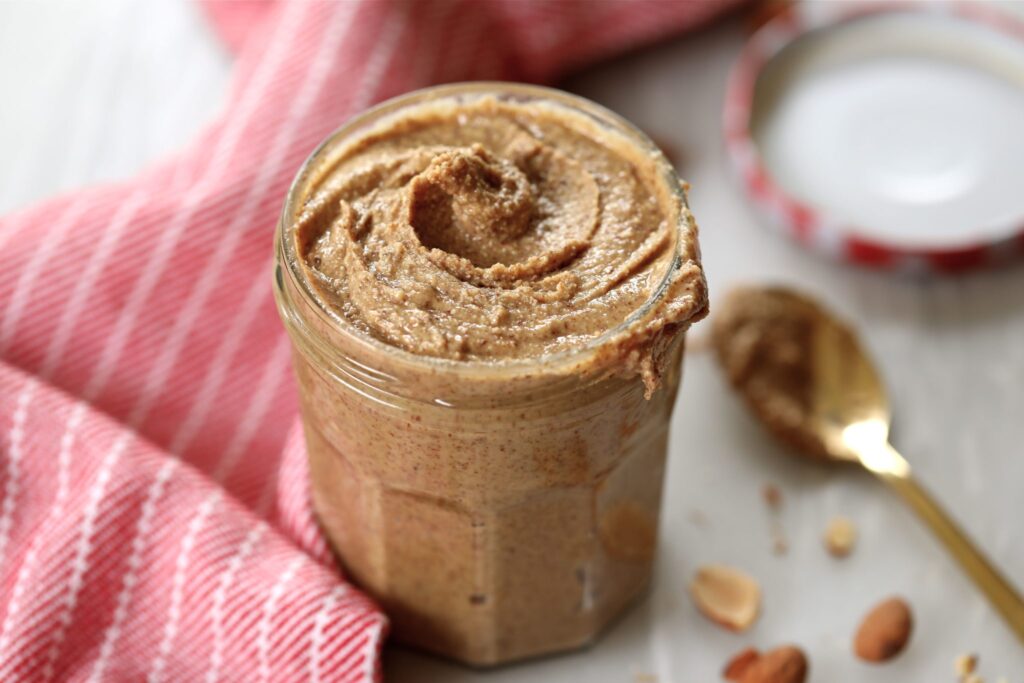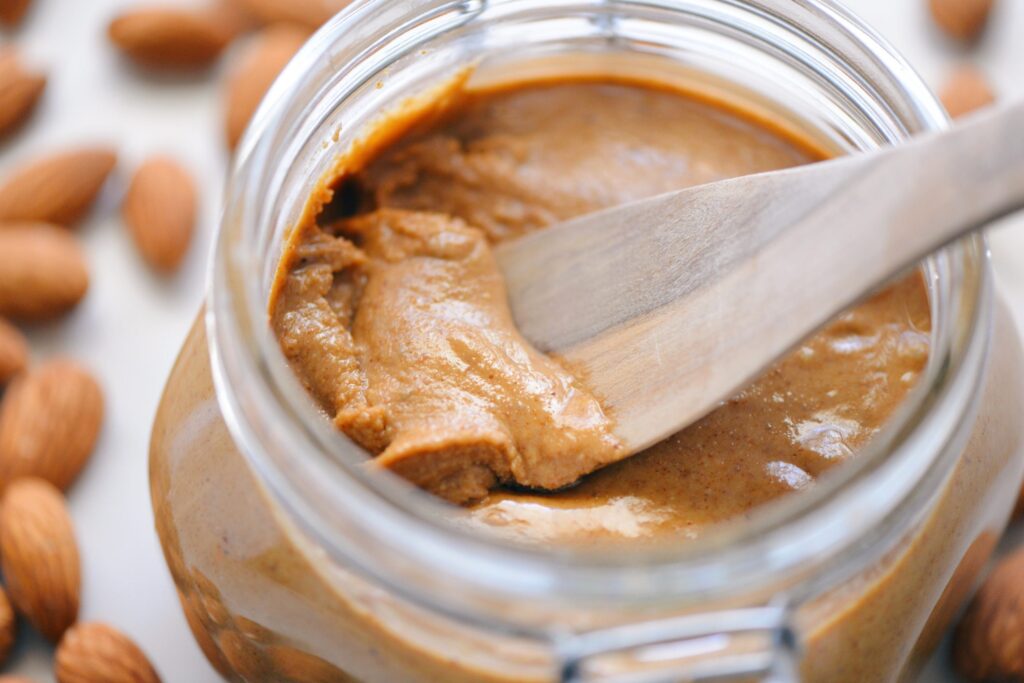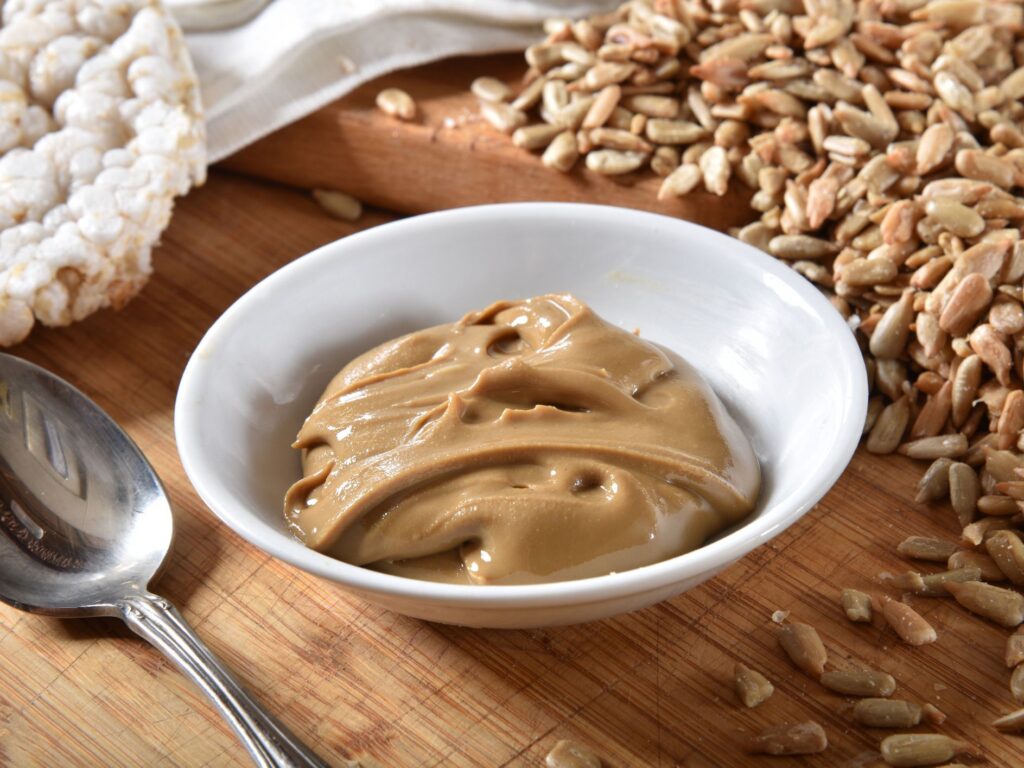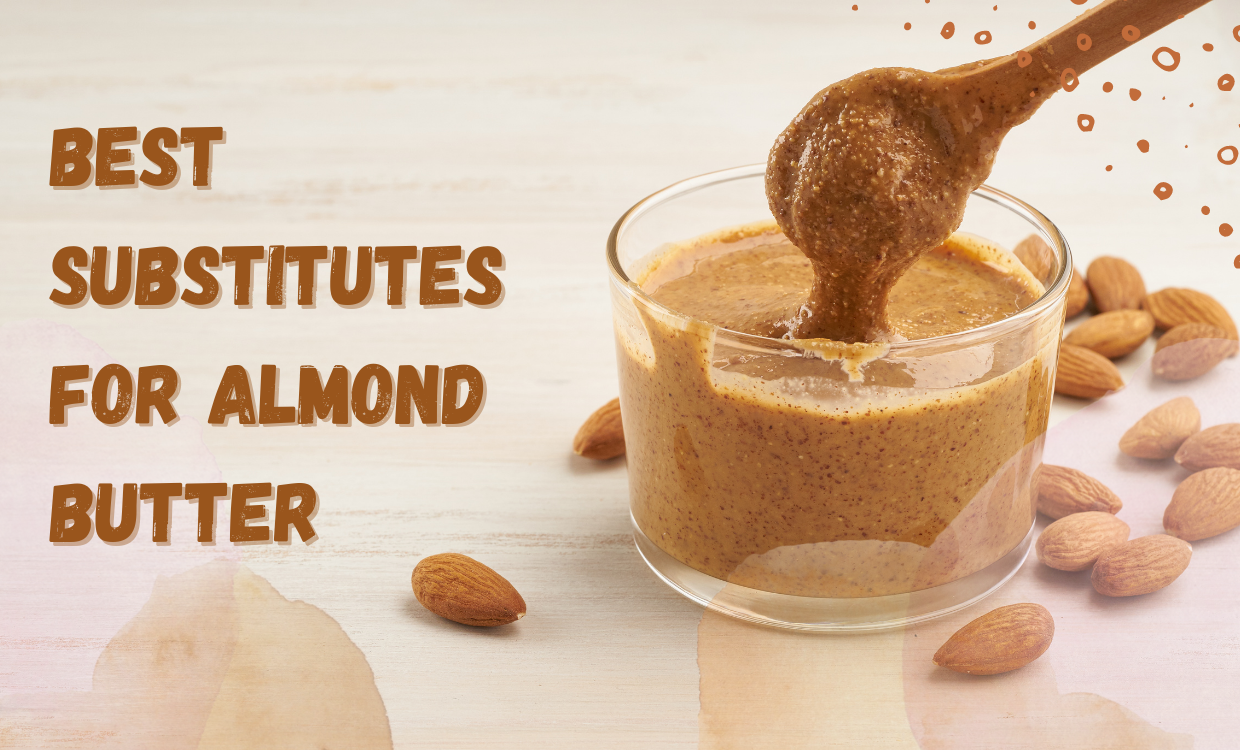Almond butter is a popular choice for many nut butter consumers. It also goes well in many recipes. Whether you prefer a different taste or have an allergy, there’s something for you. Here are some substitutes for almond butter that make up your best choices.
What is Almond Butter?

For years, peanut butter was what everyone ate and still do. Yet almond butter came on the scene and has become an extra go-to nut butter.
Almond butter is similar to peanut butter in how it’s made. The creation comes from either raw almonds or roasted almonds. It is then ground into a spread, like peanut butter. Its similarities don’t end there. Almond butter comes in crunchy and smooth formulations as well as stir and no-stir.
Almond butter’s kinship with peanut butter has a lot to do with its popularity, but for many, they need or want a substitute. The great thing is that the substitutions we’ll be talking about are also similarly made. In addition, they have the same consistency and formulations, making them an ideal substitute. Lucky for us, there is a nut butter for all tastes and needs.
Why Substitute It In the First Place?

Now that you’ve heard about what it is and how it’s made, why would you want to substitute it? There are a few reasons.
Some people simply prefer the taste of other kinds of nut butters. And there are some who have nut allergies and need something else.
According to York Test Laboratories:
An almond intolerance is a set of specific symptoms brought on after eating almonds. Whilst most people can eat almonds in moderation with no negative health effects, people with an intolerance to almonds are likely to feel ill – although not immediately – after ingesting the nuts. Whilst individual factors apply, one reason for feeling ill after eating almonds is the body mistakenly identifying the proteins in the nut as foreign. This can happen if, during digestion, tiny particles of food leak out of the gut wall into the bloodstream, activating an immune response. The immune response can cause inflammation, which in turn triggers the symptoms of almond intolerance.
Peanuts themselves are really quite different from almonds. Almonds are tree nuts and peanuts aren’t nuts at all. Tree nuts include almonds, cashews, hazelnuts, pecans, and more. Some may be intolerant to almonds but can eat other types of tree nuts. Peanuts, however, grow underground. Whew, that all sounds like a test where you’re supposed to answer if some nuts are tree nuts but not all nuts are …..well, you get the idea.
What Are the Best Substitutes for Almond Butter?
If you looking for a substitute for almond butter, the choices are many, and we have some downright delicious options for you. You’ll love these so much, you may not even miss the almond butter.
Peanut Butter

The first obvious choice is peanut butter. It goes well in most recipes and has the same texture as almond butter. Like almond butter, you can choose between crunchy, smooth, stir, and stir-free.
And while peanut butter doesn’t pack quite the same health punch as almond butter – it is still a nutritious choice in recipes and as a snack. Both have unsaturated fats, fiber, and Vitamin E.
Make sure you find a healthy peanut butter like our Cinnamon Peanut Butter. This gourmet peanut butter has wholesome, delicious ingredients. The texture is to-die-for and the flavor – well, you’ll see what we mean when you taste it.
Sunflower Seed Butter

Another excellent choice is sunflower seed butter. For those with peanut allergies, sunflower seed butter is often used as a go-to alternative. It has great nutritional value with more monounsaturated fats than almond butter. It also has a good amount of Vitamin E in it and more folate.
The great thing about sunflower seed butter is that it doesn’t contain any nuts. Say what? No, really it’s an edible seed and not a nut at all. The taste is deep and delicious. It is less creamy than peanut butter but spreads easily and tends not to have quite as a thick a consistency as nut butters . Many really enjoy the roasted flavor of seed butters such as our Cinnamon Seed Butter with Sunflower and Chia Seeds.
This is an almond butter substitute ideal for dipping, spreading, and everything else you can think of.
Cashew Butter

For a heart-healthy choice that’s not almond butter, try cashew butter. It’s delicious right out of the jar and works well in recipes that call for almond butter. It also has something almond butter does not – and that’s Vitamin K.
What about the taste? Cashew butter has a natural sweetness to it. This makes it great to use as a dip or in your favorite recipe. Pairing this butter with jelly in a sandwich takes a traditional favorite to new heights. You can control the sweetness level by the fruit spread you choose, and you can even add a little mint for an extra burst of flavor.
Our Toasted Coconut Cashew Butter has a taste like no other. The texture has a slight crunch and the notes of toasted coconut make for a combination you’ll crave.
What Kind of Recipes Allow Substitutions?
No matter what you’re creating in your kitchen, there is a substitute for almond butter. Nut butter like peanut butter, cashew butter, and sunflower seed butter are like the consistency and taste of almond butter. While individually they have variations in flavor, they all work well in most recipes that call for almond butter.
For example, a recipe for Almond Butter Soba Noodles with Garlic Shrimp calls for an almond butter sauce. With the flavors being similar, this recipe an be easily altered to include a peanut butter sauce or cashew butter sauce.
The Best Choice in Almond Butter Substitutions
If you are looking for an almond butter substitute, you can’t go wrong with any of our Betsy’s Best gourmet nut and seed butter varieties. You won’t find anything in them but natural, non-GMO ingredients. You won’t miss the extra sugars, preservatives and unnecessary ingredients you’ll find in other products out there. Each of our nut and seed butters have a unique recipe that, you guessed it, you won’t find anywhere else.
Betsy Opyt, a registered dietitian, licensed diabetes educator, and certified personal trainer, started making nut butters in her kitchen. As people started trying them (her daughter is her biggest fan), our Betsy’s Best brand grew. Now you can see what everyone is raving about.

